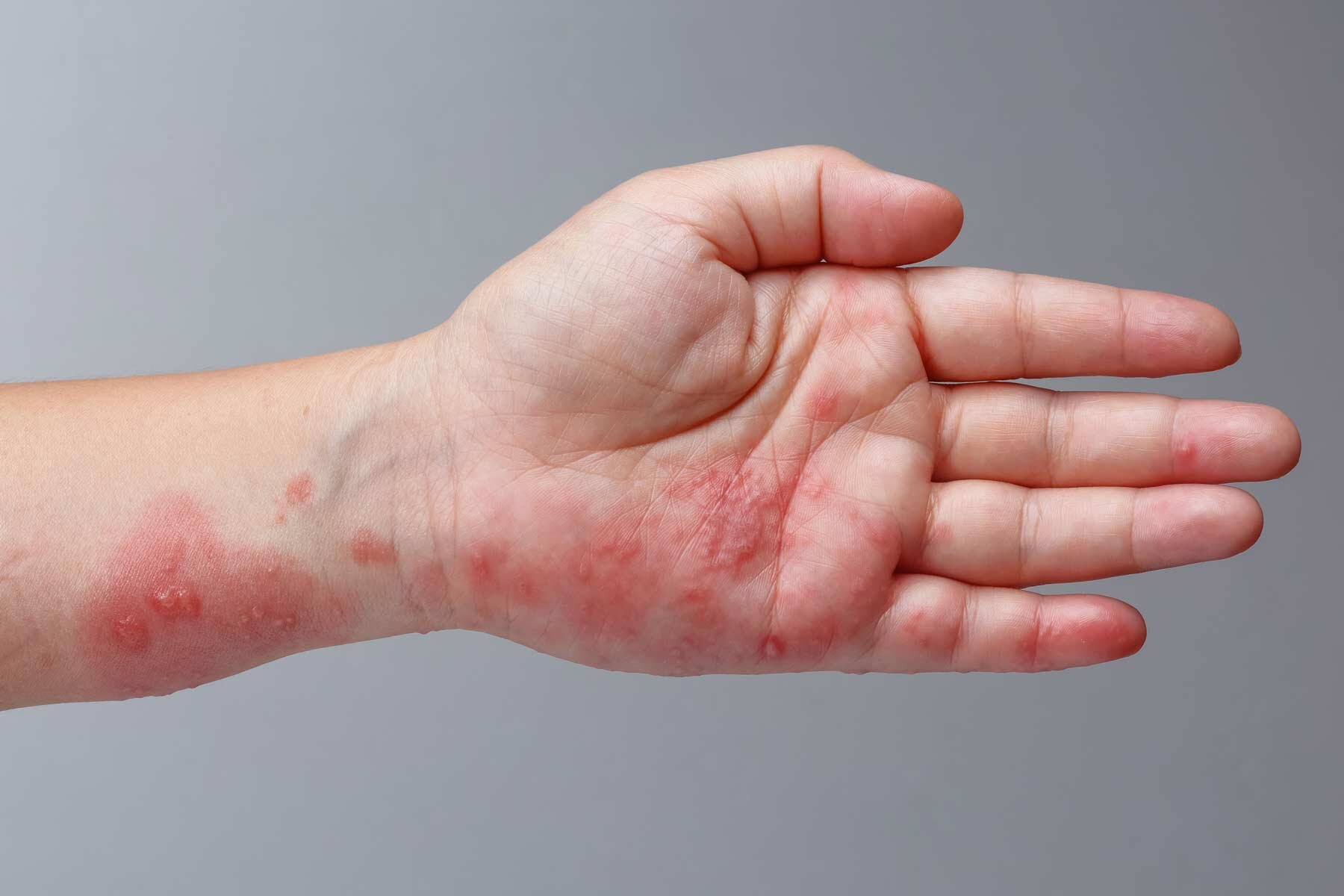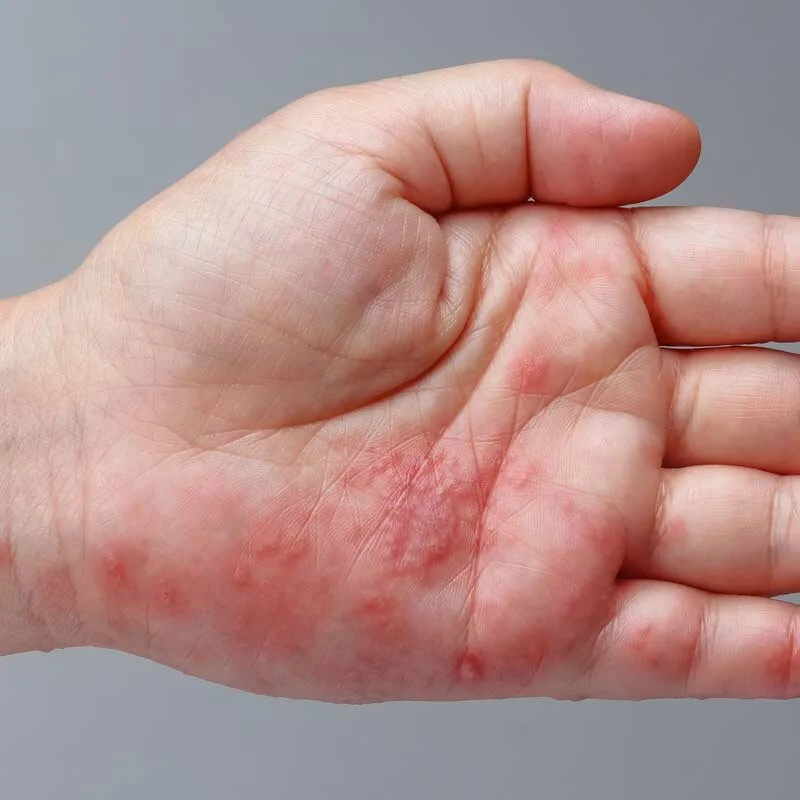
Hand Rash
A hand rash is a skin condition that affects the hands and can be caused by a variety of factors, including allergies, infections, and underlying medical conditions. Some common types of hand rash include:
Allergic contact dermatitis: a type of hand rash that is caused by an allergic reaction to a substance that comes into contact with the skin
Atopic dermatitis: a type of hand rash that is characterized by dry, itchy skin and is often associated with allergies or asthma
Irritant contact dermatitis: a type of hand rash that is caused by the repeated or prolonged exposure to an irritant, such as detergents or soaps
Infections: certain infections, such as fungal infections or impetigo, can cause a hand rash
Symptoms of hand rash may vary depending on the underlying cause of the rash and may include itching, redness, swelling, and the presence of bumps or blisters on the skin. Hand rash may also cause the skin to crack or peel, and may be accompanied by other symptoms, such as fever or body aches.
Treatment for hand rash may involve the use of over-the-counter or prescription medications, such as corticosteroids, antihistamines, or antifungal creams, depending on the underlying cause of the rash. In some cases, a healthcare provider may recommend other treatments, such as phototherapy (exposure to controlled amounts of UV light) or immunosuppressants.
In addition to treatment, there are several steps you can take to help reduce your risk of developing hand rash:
Avoid triggers that may worsen your condition, such as certain soaps, detergents, or other substances that come into contact with your skin
Keep your hands clean and moisturized to help reduce dryness and irritation
Wear gloves when you are working with chemicals or other substances that may irritate your skin
Avoid scratching or picking at the rash, as this can cause infection or scarring
By following these precautions and seeking treatment as needed, you can help to manage hand rash and reduce your risk of developing this type of skin condition. If you are concerned about a hand rash or have any other changes in your skin, it is important to see a dermatology provider for evaluation and treatment. Early detection and treatment can help to prevent the rash from worsening and may improve the chances of a successful outcome.

